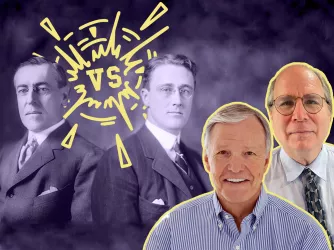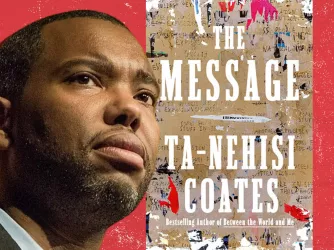Table of Contents
College Trustees Reject Free Speech Statement Approved by Franklin & Marshall Faculty

When it comes to free speech at Franklin & Marshall College (F&M), there’s good news and there’s bad news.
The good news is that the faculty adopted a version of the University of Chicago’s exemplary statement on campus free expression last semester. F&M becomes the 13th institution at which a faculty body or the administration itself has endorsed a version of the Chicago Statement since FIRE endorsed it in January of 2015 as the gold standard for campus commitments to free speech.
The bad news is that F&M’s board of trustees says the college itself will not commit to such a strong statement in favor of free speech, citing “legal” concerns and expressing worry over the “delicate balance” involving “uninhibited but still respectful exchange of ideas.”
The Faculty Statement on Freedom of Expression was formally adopted at a faculty meeting in February and provides that the private Pennsylvania college’s “fundamental commitment is to the principle that debate or deliberation may not be suppressed because of the ideas put forth.” The statement declares:
Because Franklin & Marshall College is committed to free and open inquiry in all matters, it guarantees all members of the College community the broadest possible latitude to express themselves freely and to challenge the views of others. The Faculty vigorously values the creation and maintenance of a climate in which all members of the community are welcomed and are encouraged to participate in the free expression of ideas. Inasmuch as the spark of truth often comes forth only after the clash of differing opinions, we view freedom of expression as highly valuable because it encourages multiple opinions, allows them to coalesce and/or clash, and opens them to the community’s reflections.
The faculty can now vote on whether that language will appear in the faculty-controlled section of the F&M handbook. But to really have an impact at F&M, Professor Matthew Hoffman—who led the charge to get the statement before the faculty—said the language needs to be in the faculty handbook’s preamble.
The preamble is “where the commitment to academic freedom [...] is expressed,” Hoffman said. “But that part of the faculty handbook is under the authority of the trustees of the college.”
So to broaden its impact, the faculty asked F&M’s board of trustees for approval.
Last week, the chair of the faculty council was notified that the trustees not only declined to endorse the statement, but will not reconsider.
“We’re all quite surprised,” Hoffman said. “Those of us who are the organizers behind it are somewhat startled, and a little bit disappointed.”
In a May 18 letter to the chair of F&M's faculty council, F&M’s board of trustees explained that while “the board unequivocally supports [the] principles” in the faculty’s statement, adopting it institution-wide could be legally risky.
“[W]e recognize that in our current society it can be a complicated task to maintain an environment in which there is uninhibited but still respectful exchange of ideas,” board chair Lawrence Bonchek wrote. “The document is a very thoughtful attempt to tread a fine line, but it necessarily contains many terms that are subject to interpretation - e.g., ‘threats,’ ‘harassment,’ ‘dignity,’ ‘reasonably regulate,’ etc. It is an unfortunate reality that statements that attempt to satisfy all sides of a complex issue have unpredictable and often counterintuitive implications, including legal ones.”
Hoffman said faculty, in passing the statement, were hoping to stave off some “unpredictable and counterintuitive implications” of their own.
Their effort to enshrine the statement follows F&M President Daniel Porterfield’s recent announcement that he would institute an anonymous campus bias reporting system. In the president’s “Call to Action” in November, Porterfield wrote that he hoped the reporting system would address “the systems, structures and silences that perpetuate racism in society—and also, at the fundamental level, for freedom from prejudice in its many forms at F&M.”
But faculty had concerns about academic freedom, Hoffman said.
“A lot of faculty who were sort of oblivious to this sort of nationwide stuff, like the Chicago Statement, were concerned about the implications of an anonymous bias reporting system,” Hoffman said.
F&M commits itself to freedom of expression and academic freedom in official policy. But, as FIRE has said for years, bias reporting systems chill speech on private campuses by threatening investigations into speech that might be subjectively offensive to a listener. On public campuses they often implicate speech explicitly protected by the First Amendment and threaten due process.
We’re pleased that F&M’s faculty has acted so strongly in favor of campus free speech by adopting a version of the Chicago Statement. After FIRE launched its national campaign last September urging colleges and universities to adopt a version of the statement, faculty or administrators at institutions nationwide have expressed their commitments to free expression on campus, including: Princeton University, Purdue University, Johns Hopkins University, American University, Chapman University, Winston-Salem State University, University of Wisconsin system, University of Virginia College at Wise, Columbia University, Louisiana State University, the University of Minnesota, and the City University of New York.
We hope F&M’s Board of Trustees will change its mind and decide to adopt this statement. From FIRE’s standpoint, the trustees’ belief that committing to free speech on campus is a “delicate” and “complicated” decision is confounding, and their contention that “threats” and “harassment” are somehow beyond definition is just plain wrong. Moreover, the concern for free speech at F&M is much more than hypothetical: the college also earns FIRE’s worst, “red light” rating for its restrictive speech codes.
F&M’s faculty have taken a decisive step towards protecting speech at the college; it’s time for the college administration to follow suit.
CORRECTION: An earlier version of this story included facts from a report saying the faculty council approved the statement. Instead, the statement was approved by a majority vote of all faculty present at February's faculty meeting. We also reported that the statement would now appear in the faculty handbook when, in fact, another faculty motion is needed to include the statement in the handbook. The Torch regrets the errors.
Recent Articles
FIRE’s award-winning Newsdesk covers the free speech news you need to stay informed.

Wilson vs. FDR: Who was worse for free speech?
Podcast
Woodrow Wilson or Franklin D. Roosevelt: which president was worse for free speech? In August, FIRE posted a , arguing that Woodrow Wilson may be America's worst-ever president for free speech. Despite the growing recognition of Wilson's...

Right, left, and in-between: Can we bring our differences to the table?

How to survive Thanksgiving
